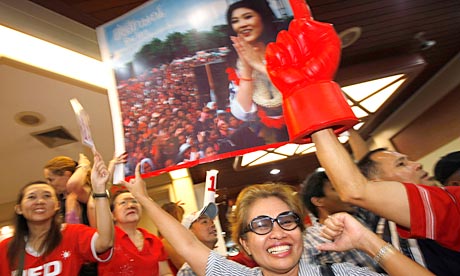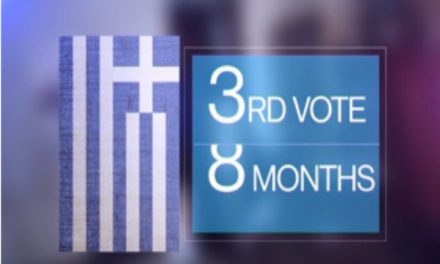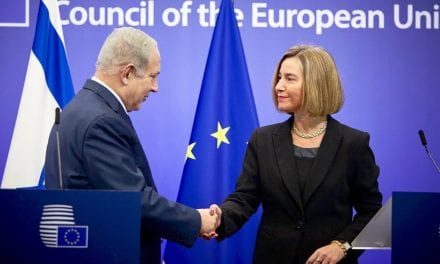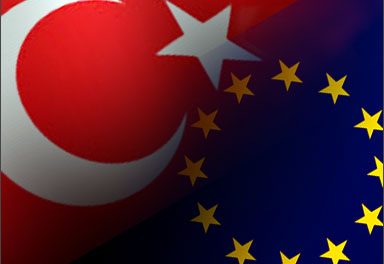By Ian MacKinnon, Bangkok
The country’s outgoing defence minister, General Prawit Wongsuwon, said that the armed forces would allow the opposition Pheu Thai led by Yingluck Shinawatra to form a government.
Ms Yingluck, 44, immediately unveiled a five-party coalition that would control 299 seats of the 500 in parliament, even though Pheu Thai alone is projected to secure a ruling majority of 265. The political novice is now almost certain to become Thailand’s first woman prime minister.
The defeated prime minister, Oxford-educated Abhisit Vejjajiva, 46, resigned as leader of his Democrat party, sticking to pre-election pledge he would quit if they secured fewer seats than before. The Democrats won just 159, down from 165.
Two previous pro-Thaksin governments were removed from office in judicial and parliamentary manoeuvring that prompted Red Shirt supporters to take to the streets in protests that ended in violence, leaving 91 dead in an army crackdown last year.
Mr Thaksin’s removal from office in a bloodless coup in 2006 led to years of turmoil in the country and he still casts a long shadow from his self-imposed exile in Dubai, where he is avoiding a two-year sentence for corruption in office.
But despite Pheu Thai’s suggestion of an amnesty that would allow his return home, both he and his sister seem to realise that his arrival could provoke trouble that would derail the party’s project.
Speaking from Dubai Mr Thaksin, 61, said he planned to remain there for the time being doing business, on hand to advise Ms Yingluck if required. “If they don’t need [advice], I don’t have to worry,” he said. “The Thai people will be in good hands.” Whether he would be making a speedy return to Thailand, he said it was “not a priority” to go home. “I may be too old … I really want to retire,” he added.
Chris Baker, a political analyst and Thaksin biographer, said the former prime minister’s possible return to the country is one of the “touchiest issues” facing Ms Yingluck because he is such a polarising figure.
“It’s very difficult,” he said. “In this country it’s possible to do a deal about anything. So it’s possible for a deal to be made to bring him home. But I think it will not be so quick.” Unveiling her coalition with four minor parties – a process that often takes weeks as the junior partners haggle for ministerial berths – Ms Yingluck said her first order of business would be leading the country in “unity and reconciliation”.
Tackling rising prices that have sent living standards plummeting, particularly among Pheu Thai’s constituency of rural poor, was another priority along with corruption.
The new government is also unlikely to risk interfering with the military over the Red Shirt crackdown or the 2006 coup for fear of incurring the wrath of the generals, despite their pledges to remain out of the political process.
“I think [the military] will say ‘if you leave us alone, we will leave you alone’, and I think that will the holding position for some time,” said Mr Baker. “The critical thing that went wrong with Thaksin Shinawatra was that he tried to interfere in the military’s internal structure, particularly in the promotions of the high command, and I think Yingluck Shinawatra will leave all that alone and it will make her much safer.”



















